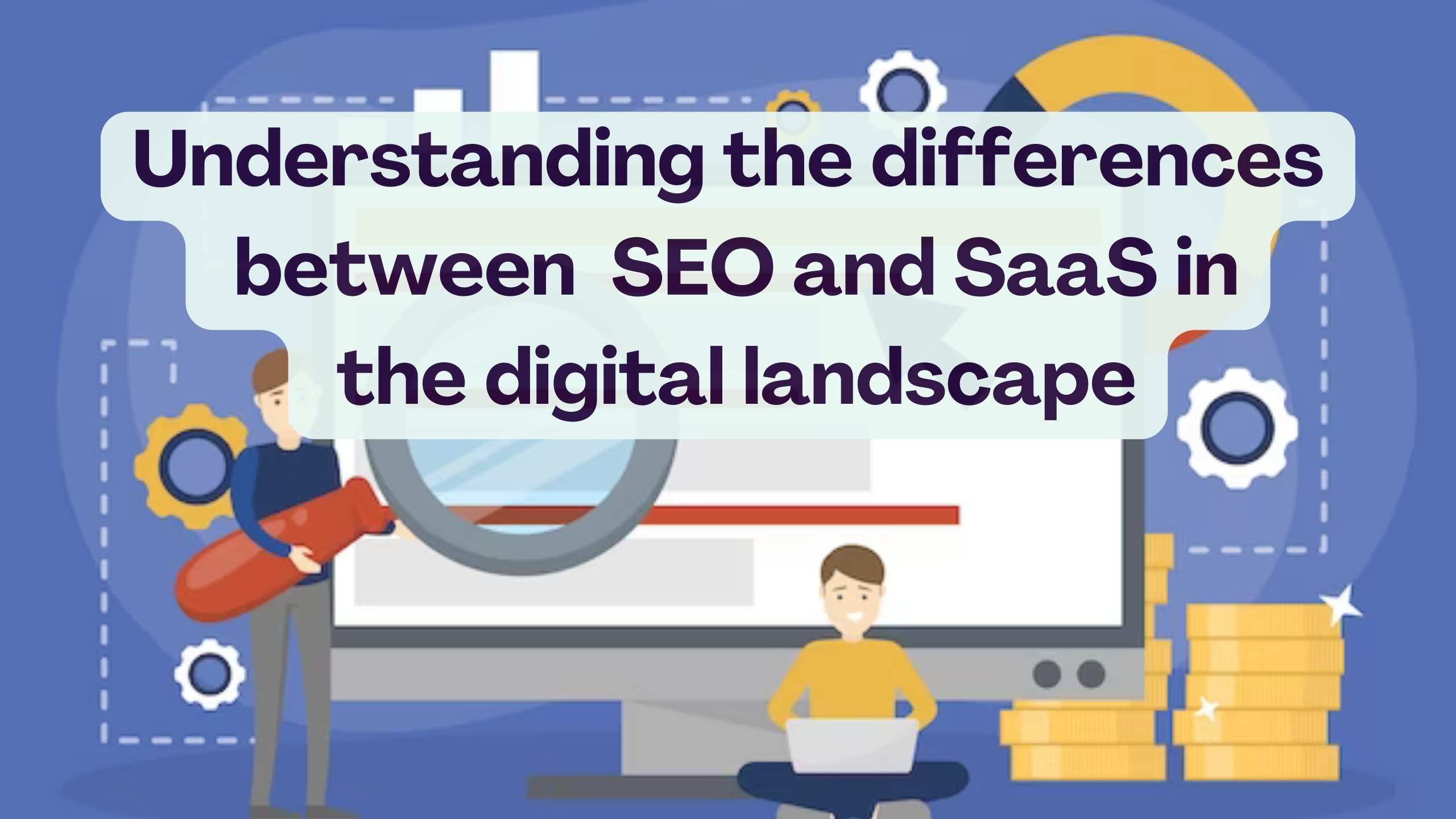Understanding the differences between SEO and SaaS in the digital landscape
- Conversational Marketing Software SEO Software Affiliate Marketing Software Marketing Tools


Understanding the Differences Between SEO and SaaS in the Digital Landscape
In the dynamic world of digital business, two terms often stand out: SEO (Search Engine Optimization) and SaaS (Software as a Service). While both play significant roles in shaping online success, they serve different functions and cater to distinct needs within the digital landscape. In this article, we’ll explore the disparities between SEO and SaaS, shedding light on their unique characteristics and importance in modern business operations.
Differentiating SEO and SaaS
What is SEO?
SEO refers to the process of optimizing a website to improve its visibility and ranking on search engine results pages (SERPs). It involves various strategies and techniques aimed at enhancing organic traffic, increasing brand awareness, and driving conversions. SEO encompasses on-page optimization, off-page optimization, technical optimization, and content creation, among other aspects.
What is SaaS?
SaaS, on the other hand, stands for Software as a Service, a software distribution model where applications are hosted by a third-party provider and made available to customers over the internet. Unlike traditional software models that require installation on individual devices, SaaS solutions are accessible through web browsers, offering scalability, flexibility, and cost-effectiveness.
Exploring the Differences
1. Nature and Purpose
- SEO: Primarily focuses on improving a website’s visibility and relevance in search engine results, driving organic traffic and attracting potential customers.
- SaaS: Offers software solutions for various business needs, ranging from project management and customer relationship management (CRM) to accounting and marketing automation.
2. Execution and Implementation
- SEO: Involves a combination of technical optimizations, content creation, keyword research, link building, and analytics tracking to enhance online visibility and ranking.
- SaaS: Requires subscription-based access to software applications hosted on remote servers, providing users with on-demand access to tools and functionalities without the need for extensive installation or maintenance.
3. Goals and Outcomes
- SEO: Aims to increase website traffic, improve search engine rankings, boost brand visibility, and drive conversions through organic search channels.
- SaaS: Seeks to streamline business processes, enhance productivity, automate tasks, and improve collaboration through specialized software solutions tailored to specific industries and needs.
Relevant SaaS Products for Business Success
Now, let’s explore a curated selection of SaaS products designed to empower businesses across various domains:
Asana
Asana – A project management platform that enables teams to organize tasks, track projects, and collaborate effectively in real time. Asana simplifies workflow management and enhances productivity across organizations of all sizes.
Salesforce
Salesforce – A leading CRM platform offering a comprehensive suite of tools for sales, marketing, customer service, and analytics. Salesforce empowers businesses to build meaningful customer relationships and drive growth through personalized experiences.
Mailchimp
Mailchimp – An all-in-one marketing platform that helps businesses create, automate, and analyze email marketing campaigns. With customizable templates, audience segmentation, and detailed analytics, Mailchimp enables businesses to engage their audience and drive conversions.
HubSpot
HubSpot – An inbound marketing and sales platform offering tools for lead generation, content management, social media marketing, and customer relationship management. HubSpot simplifies marketing automation and enables businesses to attract, engage, and delight customers throughout their journey.
Shopify
Shopify – An e-commerce platform that allows businesses to create, customize, and manage online stores with ease. Shopify provides a range of features, including secure payment processing, inventory management, and multichannel selling capabilities, empowering entrepreneurs to build successful online businesses.
Conclusion: Leveraging SEO and SaaS for Business Growth
In conclusion, while SEO and SaaS serve different purposes in the digital landscape, both are indispensable components of a successful online presence. By understanding the nuances between SEO optimization and leveraging the right SaaS solutions, businesses can unlock their full potential, drive growth, and stay ahead in today’s competitive market. Ready to explore the vast landscape of SaaS solutions tailored to your business needs? Discover exclusive deals and unlock savings on a wide range of tools at Subscribed.FYI. Sign up today to access secret deals and optimize your SaaS stack for maximum efficiency.








